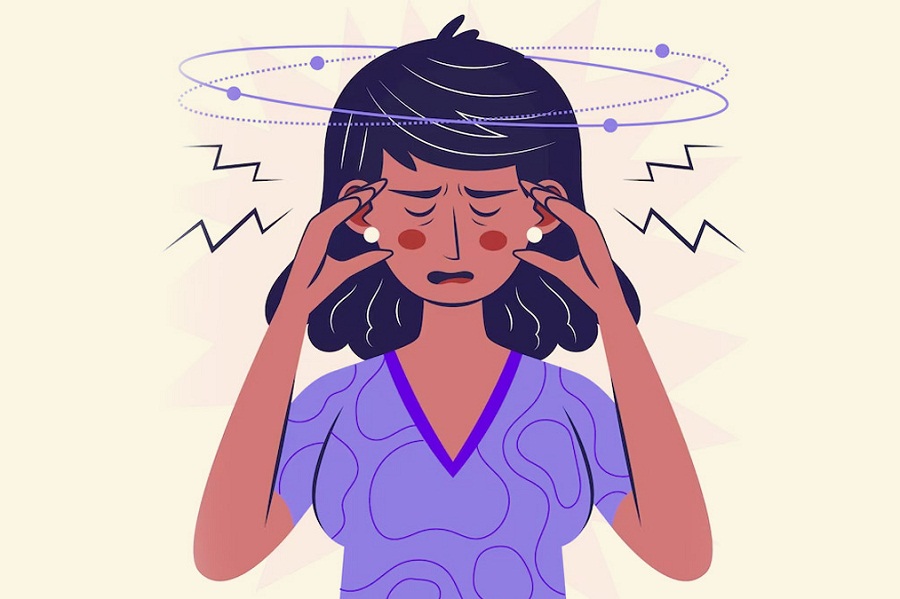
Published :
Updated :

Ever feel that the world around us is spinning, or the head is rotating around while everything else is still? If yes, then that is a taste of vertigo!
Patients suffering from it describe the sensation in a variety of ways. For some, it is a spinning or tilting kind of motion. Others complain of being pulled in a specific direction. Losing balance and swaying of the head are other types of feelings people may have.
The issue may be barely noticeable, so only perceived as a temporary nuisance. But other times, it may be more severe and recurrent, hampering our balance and compromising quality of life.
Vertigo can be characterised by simple dizziness or lightheadedness with or without the spinning sensation. But there could be other symptoms too. For example, hearing loss, ringing sensation in the ears, rapid and uncoordinated eye movement, vomiting or nausea etc.
Such attacks usually appear suddenly without warning. The duration of the spinning may vary from a few seconds to minutes. In serious cases, symptoms reappear frequently and last longer over a few days.
Vertigo itself is not a disease, but rather a symptom of underlying conditions. Generally, problems with the inner ear or certain areas of the brain can give rise to problems.
Perhaps the commonest cause is Benign paroxysmal positional vertigo (BPPV). BPPV is often precipitated by changes in head position, e.g., lying down or sitting up, tipping the head up or down etc. It could even result from walking or standing up. Exactly which movement caused the episode is different from person to person.
There are other causes of vertigo or dizziness. If someone suffers from low blood pressure, this can give rise to lightheadedness or a spinning sensation. Migraine can do the same. Infection of the inner ear may also be suspected.
Vertigo is also a symptom of Ménière’s disease, a progressive inner ear disease responsible for hearing loss., Vestibular neuronitis, inflammation of the vestibular nerve, is another condition that could impair the brain’s ability to maintain balance, resulting in vertigo.
Sometimes, vertigo or dizziness is an indication of a severe health issue, e.g., stroke.
If vertigo is accompanied by high fever, nausea or vomiting and a high fever, emergency case must be sought. Anyone with long-lasting, persistent or recurrent vertigo should also seek a medical opinion, especially, if the vertigo is associated with other symptoms, such as chest pain, blurring of the vision, speaking difficulty, hearing problems, numbness in the face, arms or legs etc., reaching out to a physician is recommended.
If the vertigo does not go away on its own over time, there are treatments available for vertigo. Medicines can be prescribed. If the patient has a hard time balancing due to vertigo, there are physiotherapy options to help with that.
We can adopt certain self-care practices to manage an episode of vertigo. The objective is to lessen the intensity of the symptoms. We can do this by keeping still when vertigo occurs, and resume activity slowly and gradually.
As sudden changes in body position are a trigger for vertigo, we should move cautiously and avoid such changes as much as possible. Bright lights, reading, etc., need to be avoided during an episode of vertigo.
imtiazdmc@gmail.com


 For all latest news, follow The Financial Express Google News channel.
For all latest news, follow The Financial Express Google News channel.